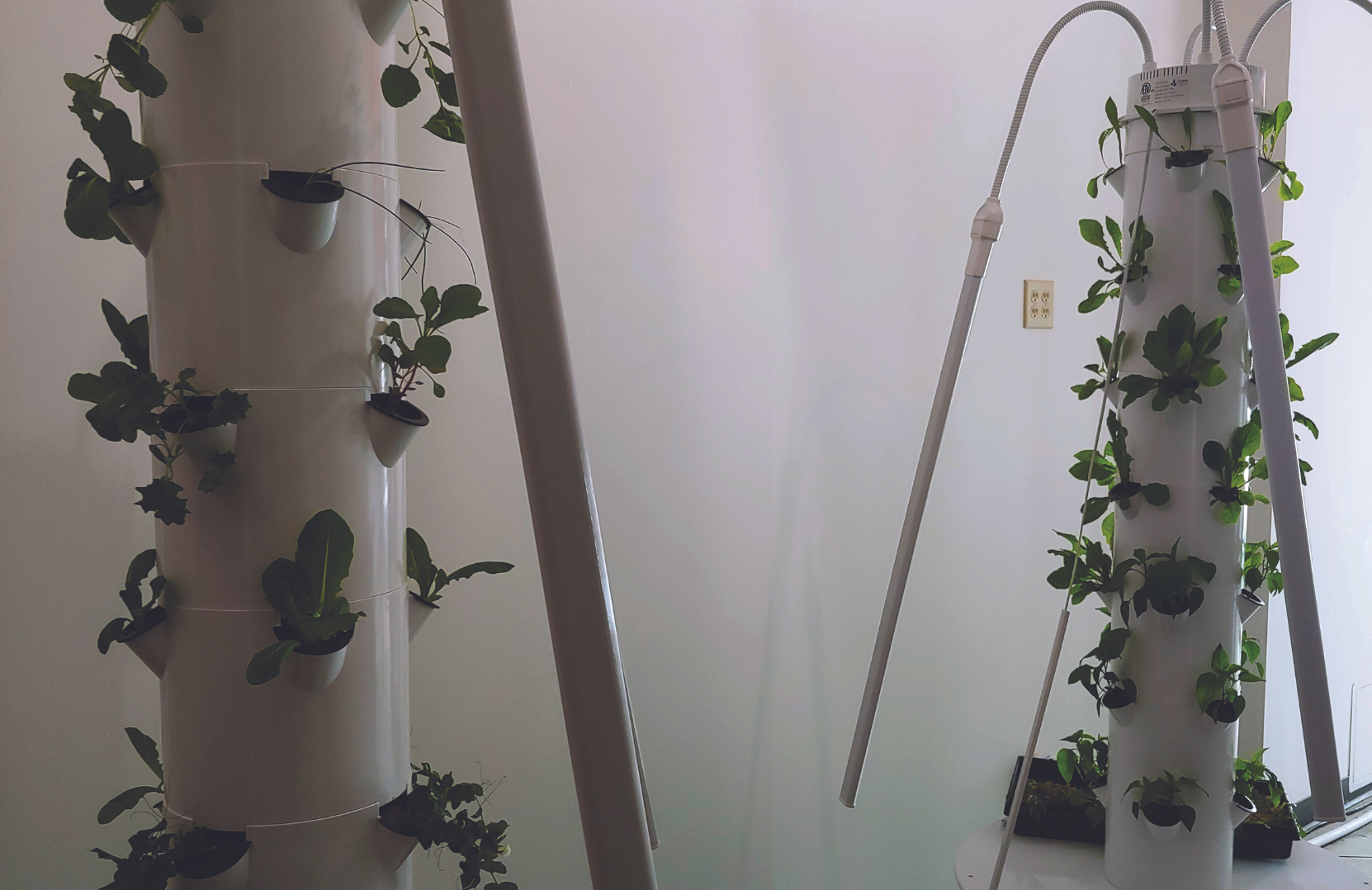ECO-SAMU is an exciting new initiative of the Students’ Association of MacEwan University (SAMU). Macey Edem Nortey, the programs manager at SAMU, has created and developed the program, basing it around ecology instead of sustainability.
“The way I view it, sustainability (has become) too much of a buzzword,” says Nortey. “I feel as though the term has kind of lost its meaning and it’s kind of wrapped up in a lot of money and things that are out of our control.” Focusing on ecology brings the attention back to creating change — no matter how small — raising awareness, and involving students in attainable initiatives.
But what exactly is ecology? “(Ecology is) the idea of relating to everything around you, whether it’s from nature all the way through to your elders and our senior population… understanding how to adapt, to inform, to resist against our changing climate,” explains Nortey. “I find that suits where we are in this urban infrastructure and what we have access to with our MacEwan (University) community being in the downtown core.”
The freeing part of ecology is that it doesn’t limit the types of initiatives the university can tackle, which sometimes happens with organizations that focus exclusively on sustainability, says Nortey.
“You’re not stuck in the box of, ‘Is this the most waste free? Am I doing this the right way?’ paralysis and trying to be too politically correct with everything you’re doing in the name of sustainability,” says Nortey. “So, ecology to me just feels like, ‘Come as you are.’”
Essentially, ECO-SAMU exists to support student’s ideas and projects around ecology, and there are several branches of ECO-SAMU to get involved in: gardening, social justice, and artistic or creative expression.
ECO-SAMU has 16 hydroponic towers across campus and in residence that grow lettuce, arugula, kale, herbs, tomatoes, and even jalapeno peppers. ECO-SAMU also has a plot at the Urban Farm that grew a variety of veggies and flowers this summer.
“That’s more of the green thumb (initiative), if you will. I call them brown thumbs because we’re never getting to green thumbs,” says Nortey with a laugh. “It’s always going to be just dirty.”
Amelia Altmiks, the community assistant at SAMU, works closely with Nortey in ECO-SAMU. “The learning curve of just growing (on hydroponic towers) is kind of unique, but also growing like this, where we’re in control of the nutrients and the temperature of the water and the airflow in the space… it is so exciting. There’s so much we can grow, truly,” she says.
The hope is to incorporate MacEwan-grown food into the SAMU Pantry, where students can confidentially access food hampers. Currently, hampers are filled with non-perishable items, but Nortey and Altmiks plan to make fresh food options available as well. Additionally, students can learn about indoor gardening and bring that knowledge back to their own communities, to make gardening more accessible.
“For most of us… making sure we have access to healthy food frequently is something we’re all nervous about. (There’s) so much inflation,” says Altmiks. “And then we’re hoping to just go rogue in the hallways and just give away microgreens and stuff like that, like little salads. And as much as it’s kind of kitschy and niche, how cool would it be?”
Nortey also wants to connect with campus Food Services and work with the chef to incorporate MacEwan-grown food into student meals. “We can outfit ourselves as campus farmers,” she says.
The social justice branch of ECO-SAMU uses the Truth and Reconciliation Calls To Action and the United Nations’ Sustainable Development Goals as guidelines for action.
“There are different goals and calls to action that align with ecology naturally, so to be able to just jump on board and fall in line with the rest of the world’s efforts… will really give students a good glimpse of how vast ecology is,” explains Nortey. “And it’s not just a terrarium or growing succulents or even food production. It’s (far) beyond.”
The artistic or creative expression stream allows students to bring the projects they’ve been working on, either in class or on their own, to ECO-SAMU where they will receive additional resources and support. Their work might result in a pilot project, or maybe a symposium or forum where students can share their ideas around ecology.
And, Nortey says, if none of these options appeal to students, she is more than willing to pivot and find a way for students to express their ideas and respond to ecology in a different way.
Currently, ECO-SAMU is looking for ECO-Ambasadors to serve as volunteers and champion ecology projects within ECO-SAMU. Students and faculty are both welcome. Volunteering with ECO-SAMU can be as simple as helping people reconsider aspects of their daily life, for example, where they can reduce waste and water consumption. Or it can be brainstorming ways MacEwan can give back ecologically and starting up individual passion projects. The options are limitless.
“I feel very, very passionately about helping reignite our sustainability issue initiatives, or coming up with new projects that get those conversations started again,” says Notey. “And students, I’m hopeful, will build off of these conversations immediately.”
“I’m curious to see what people will be interested in adding to this project and how it will kind of grow and live with the students and with the faculty,” adds Altmiks.For more information about ECO-SAMU, visit samu.ca/student-resources/events-culture/eco-samu/. See samu.ca/student-resources/events-culture/eco-samu/eco-ambassadors/ to sign up as an ECO-Ambassador.





0 Comments